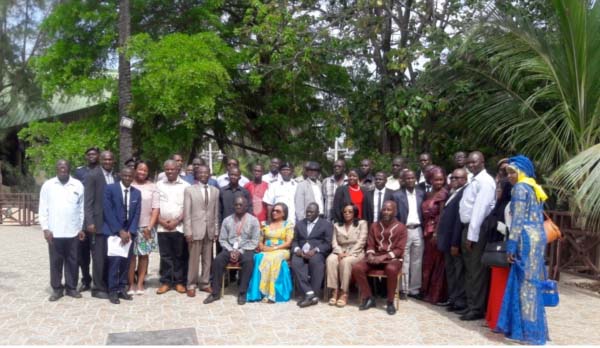
The
Gambia government through the Disaster Governing Council, in collaboration with
the World Bank and ECOWAS, Monday commenced a five-day training workshop on
Disaster Risk Reduction (DRR) and Post-Disaster Need Assessment at the
Senegambia Beach Hotel in Kololi.
The
workshop is aimed at building the capacity and establishing professionals on
the approach and methodology for defining plans as well as to manage strategies
for post-disaster recovery programmes in West Africa.
Speaking
at the opening ceremony, the Chairman of the National Disaster Risk Reduction
and Climate Change Adaptation Platform, Alhaji Manjang, expressed appreciation
to the Government of The Gambia through the Disaster Governing Council for the
support in creating an enabling environment to allow the smooth operation of
this important platform.
He
said the council’s support and continuous guidance was a clear testimony of
high-level political commitment to address issues of DRR and Climate Change
Adaptation in The Gambia.
Mr
Manjang added that the National Platform for Disaster Risk Reduction and
Climate Change Adaptation in The Gambia was established and launched seven
years ago.
The
platform being a technical body provides opportunity for members to support the
NDMA in its efforts to address needs associated with climate-related hazards,
he added.
He
said the training was very timely considering the need for technical capacity
building in the areas of DRR and Climate Change Adaptation for members of the
National Platform since they are expected to advice on the strategies and
practices needed to create resilience in The Gambia.
Also
speaking at the ceremony, the resident representative of the President of
ECOWAS Commission in The Gambia, Vabah Kazaku Gayfor, informed the gathering
that the West Africa region has also been categorized as having one of the
fastest growing populations and the most rapid rate of urbanization in Africa.
She
pointed out that the region is also exposed to more risk and disasters due to
lack of coping capabilities to face the fast pace of development and planning
needs.
She
further pointed out that the combination of the effects of these emergencies
have serious socio-economic impact on the population of the region and the
extent of vulnerability and exposure to risk and loses from disasters are
expected to continue to increase over the next decade.
In
response, she declared, ECOWAS has been working to help the Member States to
cope with disaster and strengthen the resilience of their population in line
with its regional policy or Disaster Risk Reduction (DRR) adapted in 2007.
She
thanked their partners, especially the World Bank, for the technical and
financial support to the ECOWAS Commission and also expressed gratitude to
other partners for their various contributions to the ECOWAS Commission and to
its Member States.
Hon.
Lamin Dibba, speaking on the occasion, disclosed that the idea of establishing the national
platform for DRR in The Gambia was conceived by the ECOWAS Commission to enable
its member states establish multi-spectoral groups to handle Disaster Risk
Reduction in their countries in a more coherent and systematic approach.
He
further disclosed that since the establishment of the national platform, The
Gambia has made great achievements on the DRR.
The
platform has provided the opportunity for the various stakeholders including
the national disaster management council and the NDMA to bring into focus the
fact that disasters are part of their very existence.


